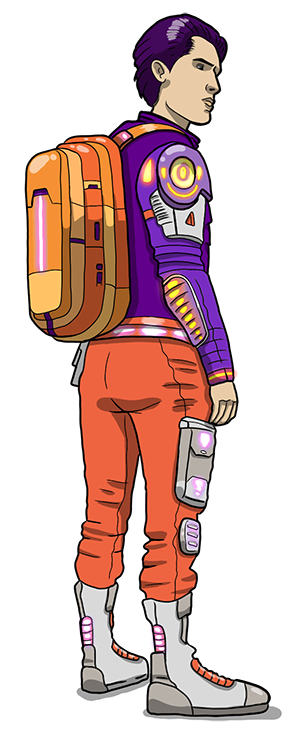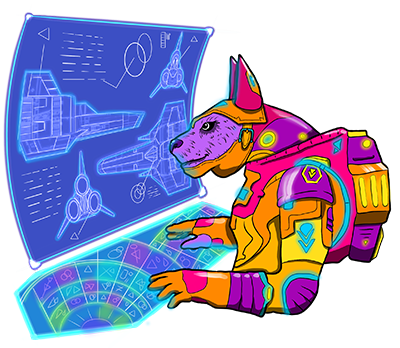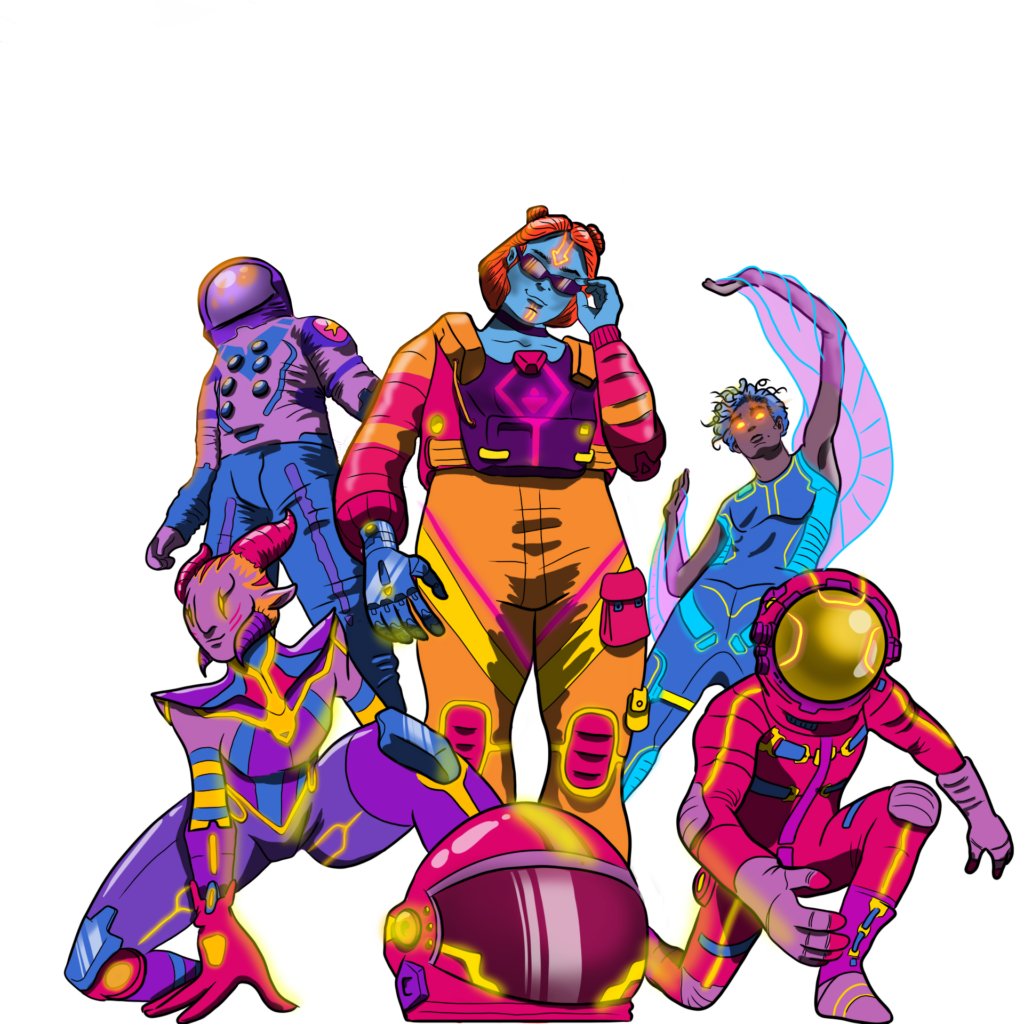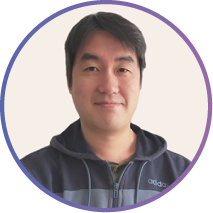Change is inevitable in any fast-paced industry, and the localization industry is no exception. In our field, successful adaptation involves adopting new tools and refining existing processes, and it’s the key to maintaining efficiency and team morale. In this interview, we sit down with Jinha Noh and Yuji Fujita, our Korean and Japanese LQA coordinators, to discuss their approaches to guiding teams through transitions. Together, they share how clear communication, collaborative learning, and resilience help their teams not only embrace change but thrive in the face of it.
How do you typically approach changes within your team, especially when it comes to new tools or processes?

JINHA: When adopting new tools, the first and most important step is to provide clear and reasonable explanations to my team. Change is not easy, especially with unfamiliar tools or processes. Communicating the reasons behind the change not only motivates the team to learn about new things but also speeds up the transition process.
As a leader, I believe it’s my responsibility to become proficient with the tool or process first before introducing it to my team. Additionally, I create comprehensive manuals or guidebooks about new changes. These resources are crucial, not just for the initial learning phase but also for future reference, and ensure that current and future team members have access to the support they need.
YUJI: It’s important to pay attention to barriers during the adaptation phase. Why do we sometimes struggle to adopt a new tool? One of the factors could be anxiety and a resistance to diving into new features, UIs, different steps for managing things, etc. My approach as a coordinator is to gather as much info as possible, take the first step and acquire the knowledge needed to communicate to the team and facilitate a smooth adaptation. The more we reduce possible sources of anxiety for the team, the more we can increase the acceptance and use of new tools or processes.
Can you share a recent experience where a significant change occurred? How did your team adapt, and what were the key challenges?
JINHA: Recently, my team transitioned from an Excel-based task tracker to a completely new system that we had not used before and that required a different set of skills. One of the biggest challenges was convincing the team that moving to a new tool was necessary, even though the old system was working fine. To address this, I had an open conversation with my team, explaining the benefits and long-term value of the new system. Once they understood the reasoning behind the change, they were more motivated to learn, and the adaptation process went smoother and faster.
YUJI: We switched to a new translation management platform some time ago. Despite having gathered information and attended learning sessions, we still had some difficulty performing certain operations—such as searching for specific strings—efficiently. The key challenge was becoming as familiar with the new tool as we were with the old one. But we are a team with excellent commitment and teamwork! By sharing findings and asking each other, we managed to adapt successfully to the new tool in a short time!
What strategies have you found effective in maintaining team morale and motivation during times of change?

JINHA: It is important to share common goals or objectives. When the entire team understands what we’re working toward, they feel more united and driven. I’ve seen teams lose motivation when the bigger picture isn’t communicated clearly by leadership. That’s why I always ensure that my team knows not just what we’re doing, but why we’re doing it. When everyone is on the same page, it creates a sense of belonging and boosts morale and motivation.
YUJI: I believe team morale and motivation may decline when the team is uncertain about the value of changes and why they are required. These are normal feelings to have during times of change. I always try to explain why the change is being introduced and how it will affect our future, and I listen to my team’s concerns and feedback. Good communication, especially active listening, always helps ease anxiety or address uncertainty. By keeping the lines of communication open and introducing change gradually, we can find the balance between well-being and productivity that we all need.
What role do training and upskilling play when implementing new technologies or workflows?
JINHA: When implementing new technologies or systems, it is important that the entire team becomes proficient in the new tools or workflows. To achieve this, proper training and upskilling are not just important, but mandatory. However, balancing training with daily responsibilities can be a challenge, so it is essential to have an effective training plan in place.
One method I like to use is the crawl-walk-run approach. In the crawl phase, training focuses on the basic stuff and getting familiar with how the tool or workflow operates. During the walk phase, we move into shadow training, where team members observe and practice under the guidance of more experienced coworkers. Finally, in the run phase, everyone is expected to work with the new technology or system at full speed. This phased approach ensures that the team gradually builds confidence and competence, making the transition smoother and more effective.
YUJI: If a new tool or workflow is implemented in our work environment, we know we’ll be working with it on a daily basis, so we try to adapt to it with a positive attitude. Training and upskilling are key to achieving successful adaptation. And individual learning and knowledge acquisition are important, but team or group learning sessions can also be helpful. By sharing your findings or experiences, you can gauge and align the team’s understanding and promote synergies.
How do you identify the strengths within your team to assign the right people to lead or champion changes?

JINHA: When assigning a team member to lead or champion a new change, it’s crucial to understand their strengths, weaknesses, and skillsets. To do this, I regularly monitor their performance and interact with them in open communication about what they’re comfortable with and where they may need support or help. By maintaining this communication, I develop a clear understanding of each person’s capabilities. This insight is valuable when selecting the right individual to take charge of new technologies or processes, because it allows me to ensure that their strengths align with the demands of the role.
YUJI: Each one of us has strengths and weaknesses. You cannot identify a person’s strengths in a single day. One person may perform a certain type of task more efficiently and struggle more with a different type of task. Working with people on a daily basis and looking at how they perform tasks or tests helps me identify who is suitable to lead or support teammates in adapting to changes.
What is your process for gathering feedback from your team after a major change is implemented? How do you incorporate that feedback into future planning?
JINHA: After every major change, I hold one-on-one meetings with each team member to gather their thoughts and feedback. I prefer these individual meetings over group meetings or discussions because some people may feel uncomfortable sharing their opinions or thoughts in front of a group of people. One-on-one conversations provide a safe space for honest feedback for all my team members.
Once I’ve gathered everyone’s input, I compile it into a report, summarizing both their opinions and my interpretation of their feedback. This report becomes an important resource for future planning, helping us to refine our approach and improve the implementation of future changes.

YUJI: Until recently, we had 2 separate groups inside our team doing LQA for different products. Then, we were asked to have each group learn the other about the other group’s product, so that each one would be able to tackle anything. This was a significant challenge that, over the course of several months, involved reading instructional documents, watching training videos, attending learning sessions, etc. Throughout this process, we got lots of feedback from teammates after they attended sessions or read documents. As a coordinator, I always try to actively gather feedback, because sometimes team members feel uncertain about things that I didn’t even notice or pay attention to. Speaking with my team members allows me to address their concerns and update our learning materials as well as plan for future sessions taking their feedback into account.
In your opinion, what are the key qualities of a team that successfully adapts to change, and how do you cultivate those qualities within your team?
YUJI: I believe being ‘Open’ to certain things is key. Being open to change, facing it with a positive attitude, and communicating about it clearly. Being open minded and adapting to individual needs or conditions, recognizing that not everyone works at the same pace or has the same background knowledge. We work under those concepts in order to cultivate those qualities in our team.
JINHA: I believe that resilience is the key quality of a team that successfully adapts to change. Building resilience isn’t easy. It takes time and effort, for sure. The foundation of resilience lies in healthy relationships between the team members and their leader. A leader must be trustworthy and honest, creating an environment where the team can work together as a cohesive unit.
When changes happen, a resilient team is prepared to face them head-on and adapt without significant setbacks. As I mentioned in my earlier response, it’s the leader’s role to provide the team with goals, purpose, and motivation. This promotes team resilience, which is essential for overcoming the challenges that come with change.

Jinha Noh is an experienced localization specialist with a diverse background in gaming, the medical field, and team coordination. He holds a Bachelor of Science in Psychology, which contributes to his ability to understand and manage team dynamics. He has solid leadership and team-building skills acquired during 8 years of military service and is currently working as a coordinator for the Korean gaming LQA team.

Yuji Fujita is an experienced localization specialist. He holds a Bachelor of Arts in Literature (Spanish and Iberian Studies). He began his LQA career in 2020, after working on several game titles, and worked as the Japanese LQA coordinator at Terra Localizations.



